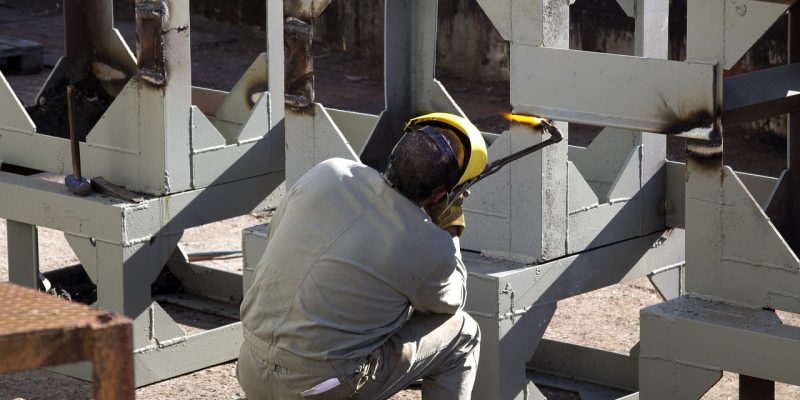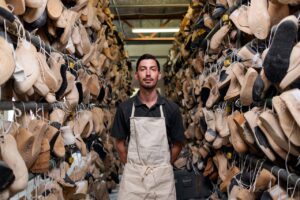With the double whammy of the trade war and the CoronaVirus, there has been a huge interest in sourcing suppliers outside of China. However, sourcing outside of China isn’t for every product. So who do you know if you should source products outside china and which country is best for you?
Over the last month, We, the Team at Cosmo Sourcing, have been talking daily to clients whose supply chains are disrupted by the factory shutdowns from Coronavirus and need to find a new supplier outside of China.
Unfortunately, we have to turn down many potential clients for many different reasons. The most common reason is simply that there is not a suitable supplier in Vietnam. Other clients have unrealistic expectations of how factories work and think it’s as easy as China. These clients are unaware of the difference in finding a suitable manufacturer in Vietnam or anywhere outside of China, so we need to be very careful to make sure they understand before we start a project.
While most of my experience sourcing outside of China is in Vietnam, Cosmo Sourcing has done a few projects in Indonesia, Malaysia, and Thailand. In addition, we have talked to experts in sourcing in other countries such as India, Taiwan, the Philippines, and Mexico. From this experience, I have made this guide on what I personally have observed is different, what products I have seen sourced and manufactured outside of China and more.
What products should you source outside China?
If you are looking to source suppliers and manufacturers outside of China you need to be mindful that non-China countries tend to only specialize in a few different industries. There is no country that is a one-stop-shop for everything like China, and no other country even comes close.
Popular items Sourced and Manufactured outside of China
We wrote a detailed country-by-country guide that covers what can be made outside China, which you can read here: Product Sourcing Outside China // 13 Best Alternatives to China Manufacturing
Product manufactured outside China include:
- Clothing
- Apparel
- Garments
- Shoes
- Plastic goods
- Stamped metal parts
- Leather goods
- Wooden goods
- Rubber and silicone goods
- Packaging
- Cut and sew items
- And much more
Broadly speaking you need to focus on items that are price sensitive in the market they are sold and items that are not time-sensitive. China has one of the most efficient supply chains in the world, so you need to understand that it will take longer to get your product sourced, manufactured, and shipped outside of China. Other countries do have delays that just happen, and not as big of a rush to get it made. Also, the cost tends to be cheaper outside of China for many products so if you are dealing with a good in which the main factor that customers buy is cost.
Things to keep in mind about sourcing outside China
If you are looking outside of China for suppliers you need to understand that the process is different. One of the most common mistakes that I see is buyers expecting other suppliers in other countries to work the same as they do in China. It does not work the same and if you have only bought from China, then you need to understand.
From my experience, these are the main misconceptions that clients have about sourcing outside China.
- Slow response times
- Private label and Dropshipping is much more difficult
- Need to work with export-focused manufacturers
- Different culture
- Alibaba isn’t the best resource
- Supply chains still rely on China
- Scalable manufacturers are harder to find
Slower response times when sourcing outside of China
China is hypercompetitive, pretty much every industry and product niche has several suppliers that directly compete against each other. Almost every factory will have a sales staff that is dedicated to responding as quickly and thoroughly as possible. Outside China, most factories tend to have a few engineers or other staff who handle sales as a side job and view sales as secondary. As a result, they will send in quotes when they get around to it, not as soon as possible/.
At Cosmo Sourcing we budget up to 2 weeks from the time we send out RFQs and we have to be aggressive in pursuing and following up with them. In China, we post a few requests and let suppliers come to us. This change in pace is something that catches much sourcing for the
ODM & Private Label Products Outside China are much harder to find
Most factories outside of China are OEM or Contract manufacturers that expect you, the buyer, to have the design files for your product already made. The Factory will make your product according to your specifications. Most factories we work with do NOT have the ability to take a product and simply make it or a product spec sheet for you. Very few factories outside China have their own designs and products ready to go.
If you are not familiar with the terms, Original Design Manufacturers (ODM) means that the factory is producing their own designs in house and selling them to buyers. This practice is extremely common with Private label business and Drop Shipping Business. As a result, it is very difficult if not impossible to find a good supplier for private labels outside of China.
When talking to potential clients who are sourcing in Vietnam for the first time, I really make a point to highlight the differences and make sure that they either have the product spec sheet made or are willing to work with someone who can make it. Cosmo does not do Dropshipping projects outside of China and let people know the challenges of doing Private Label.
Focus on finding and export-focused manufacturer
Just because a factory makes an item does not mean that it’s a suitable supplier. You need to understand that making an item for the domestic market is different from making Item for the international market. When you are selecting a factory make sure that they have exported before and are set up to make products that meet the quality standards and regulation of the market that they ultimately end up.
There are extra steps and certifications that a factory must obtain in order to export and get their product imported. In the EU, you need to get CE certifications, many products need lab testing to sell, and if it involves electricity then you’ll need UL certifications. Make sure you work with a factory that knows what they are doing.
In addition, the factory or suppliers need to understand the expectation of quality that the consumers in the destination country expect. It’s much harder to meet these standards if the factory does not have previous experience exporting to the destination country.
That being said we have worked with factories that have not exported before. However, to do so and start that process requires a significant more amount of work to get a product made. In some cases, this has required us to get a certification, which the client paid out of their own pocket.
Different Culture than China
Every culture around the world is different, in both how they do business and how they interact with foreigners. Do not go in expecting it to be the same as in China or your home country. I can’t give much singular advice on this as Vietnam is different from Mexico and India is different than even Malaysia.
That being said, I’ve done business in over a dozen countries and there are some universal values that apply to every country. Be polite yet professional, be quick to compliment and slow to criticize. Always try to understand the culture and take advantage of opportunities to do so. Always be curious and not afraid to ask honest questions. I’ve found that almost everywhere people are proud of their heritage and are happy to show it off.
Many Components are still Sourced from China
Even if your product is made outside China, many components, parts, and even raw materials are still sourced from China.
No other country has a supply chain as diverse and vertically integrated as China, and whoever is second is not even close. Even though the bulk of manufacturing and final assembly is done outside of China many components and sub-assemblies still need to be sourced or manufactured in China. Right now (Feb 2020) we are having an issue with getting backpacks finished in Vietnam because the zippers and some plastic latches are sourced from China.
There are many cases like this in the world. Our wooden furniture is made in Vietnam or Malaysia but the metal handles come from China. Doing plastic injection in Taiwan or Thailand? You still probably need to order the mold from China. For many products, you are only outsourcing the final assembly outside of China.
Use alternatives to Alibaba to find suppliers outside China
Alibaba is so popular among Chinese suppliers and foreign buyers in China that it’s pretty much the default method for finding suppliers. Many people have only used Alibaba and have had a great deal of success finding a reliable and reputable supplier for their business.
Even though Alibaba has suppliers outside of China they tend to be few and far between. Vietnam, for instance, has a strong distrust of all things Chinese and almost no factory uses Alibaba. This is the same for many other countries. As a result, it’s Best to use Alibaba Alternatives.
We made this list of more than 50 Alibaba alternatives form Around the world to find suppliers outside China. We cover Alibaba Alternatives in Vietnam, India, Thailand, Malaysia, Indonesia and more. Many of these are not true Alibaba alternatives but are more of a database, b2b suppliers list, and more. Overall Global Sources is the best outside China, but we recommend looking at country specific options. Some of these have features like the RFQ feature that Alibaba has, others just have the contact info and you can reach out to factories directly.
Finally, When searching for suppliers don’t forget that google works well. Google, which is banned in China, is not banned in the rest of the world. You can literally just google “ manufacturer/suppliers in [country]” and you’ll get tons of results.
Lower MOQs are more difficult to achieve
One of the major issues when working with overseas suppliers outside of China is that it is much more difficult to start small and work your way up.
In Vietnam, for instance, we do not take on any clothing, apparel, and garment projects that are less than 2,000 units. Factories in Vietnam just refuse to give quotes for small orders
Many clients are used to working with China where they can place a small first order of 50-100 units and then make a larger order later. Unfortunately, this is unique to China and is very difficult to find outside of China.
The low MOQ is mainly for large factories, there are still several smaller factories that can produce it, but for it will be difficult to scale up assuming your product takes off. These small factories are suitable to make a few dozen or
Final Thoughts
If you keep your mind and options open you can find great suppliers outside of China. It’s important that you keep each point in mind when sourcing and allow for flexibility. In reality, though, many people don’t have that tie or flexibility.
Unfortunately, many businesses fail to prepare and are rushing and scrambling to find alternatives to China. It’s still doable when rushing but the results won’t be the best. If you want the best results to talk with an experienced sourcing company or agent who can give you the best on the ground advice.





1 thought on “7 Challenges of Manufacturing Outside China // What is Different About Suppliers Outside China”
Thanks for this great article! I was really curious as to what it’s like to find a manufacturer outside of China and this answered most of my questions.